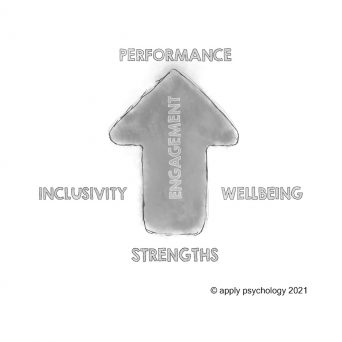Understanding personality is helpful, but a focus on strengths releases sustained high team performance
For many years now organisations have recognised the value of helping teams to understand each other better. We know that teams that have deeper and closer relationships tend to perform better.
Often teams use tools such as Myers Briggs, Insights, or others to help individuals understand themselves, and to understand how their colleagues may differ from them. If well facilitated this is a good thing, but it has limitations.
Personality is the collection of behavioural traits that are stable over time. There is a good evolutionary reason why it is helpful to have some stability and hence predictability about our behaviour – it enables relationships. If people suffer a brain injury or dementia, one of the hardest things for relatives is often that ‘they are not the same person’. We take it for granted that we ‘know’ people, that there is some consistency in their behaviour and that enables our relationship with them.
Aside from this element of us that is stable, we know that other aspects do change over time. We have different experiences, develop different attitudes, and most certainly discover new interests and levels of confidence. Strengths takes this change into account.
Strengths are any activities that you get energised by when you apply them. There is some overlap with personality (those with similar characters may get energised by similar strengths, although not always) but also a recognition of changing situations and context and the role that emotions play. Your strengths are therefore likely to change over time. The emphasis with strengths is understanding individuality rather than categorising people. This is of course more complex.
Our brains love to simplify and presenting a way of simplifying ‘who someone is’ is very appealing. Good facilitators will always emphasise that personality types are not describing the only way that someone behaves, however when that facilitator is not in the room people often revert to taking about their ‘colour’ or ‘Type’ and whether they are similar, different, or even whether they fit in or not. This has the potential to lead to feelings of exclusion not inclusion.
If we instead emphasise that everyone is different (and what they are motivated by changes over time), then rather than just a one-off session, we start to encourage continuous conversations about how we each work at our best and how we work best together. This is what really leads to sustainable and high team performance.
Get in touch to find out more: hello@applypsychology.co.uk

INCLUSIVITY
 0 min
0 min
 0 min
0 min


